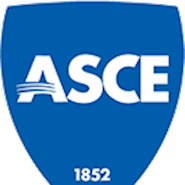ASCE has honored Jennifer Harris Trosper, M.ASCE, with the 2024 Columbia Medal for a distinguished career working on every rover that has ever driven on Mars, culminating recently with the role of project manager for the Mars 2020 mission, featuring the wildly successful Perseverance rover and Ingenuity helicopter.
Trosper is project manager for NASA's Mars 2020 Perseverance rover and, over the course of 30 years of distinguished service at Jet Propulsion Laboratory (JPL), has held critical engineering leadership roles on every spacecraft ever to have roved the surface of Mars. These sustained outstanding contributions to space-borne missions have laid the foundation for future civil engineering support of sustained Mars exploration. These Mars rovers have inspired a generation of research into geotechnical and terramechanical properties of the red planet.
She joined the Perseverance team in 2015 and held several leadership roles during the development and operations of the mission: Mission System Development Manager and Surface Phase Lead, Project System Engineer and Engineering Technical Authority, and Mars 2020 Deputy Project Manager. In prior roles on JPL missions, she was the deputy project manager and mission manager for the Mars Science Lab Curiosity rover. She has also provided leadership of systems engineering and operations for the Mars Exploration Rovers, SMAP, and Mars 2001 Odyssey missions. As well, she worked as a testbed and subsystem engineer on the Mars Pathfinder and Cassini missions.
She originally joined JPL as a subsystem engineer in power, attitude control, and command data handling areas. Her end-to-end expertise in leading system engineering teams through design, verification and validation, and operations of complex systems has been the hallmark of her success at JPL. She has been a key leader in the infusion of autonomy and state-of-the-art ground operations systems into the JPL rover missions.
The Columbia Medal is granted for sustained outstanding contribution to the advancement of aerospace engineering, sciences, and technology in at least one of the following areas: teaching, research, design, development, planning, construction, management, or direct participation in space-borne missions and/or ground-support activities.



